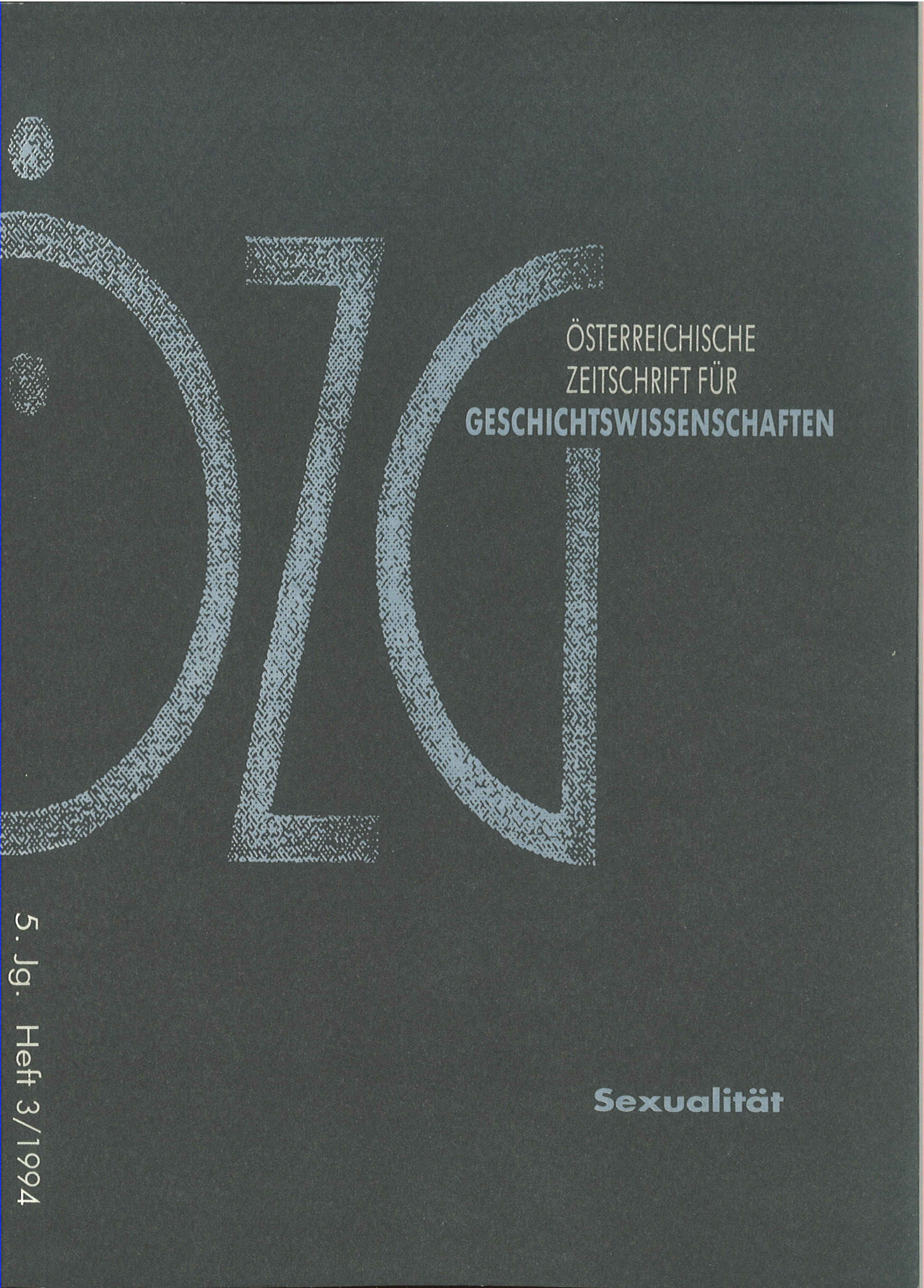Purity and Persecution
Male Bonding, Homosexuality and Politics in Germany 1900-1945
DOI:
https://doi.org/10.25365/oezg-1994-5-3-5Abstract
The National Socialist persecution of homosexual men has repeatedly been linked to fascist racist ideology and eugenics. In this article an alternative explanation is presented, describing it as a result of the tension between homosocial and homoerotic tendencies in German nationalism. lt is argued, that the Nazi leadership regarded homosexuality primarily as an internal problem. The fear that the male comradeship necessary for the cohesion of military organisations would degenerate into homosexuality contributed powerfully to the preoccupation of some party officials with same sex behaviour and a diversity of remedies against it. The severe penalties which were supposed to have a deterrent effect, were in the eyes of several leaders of the movement indispensable to guarantee the purity of and the discipline in the National Socialist Männerbund.


